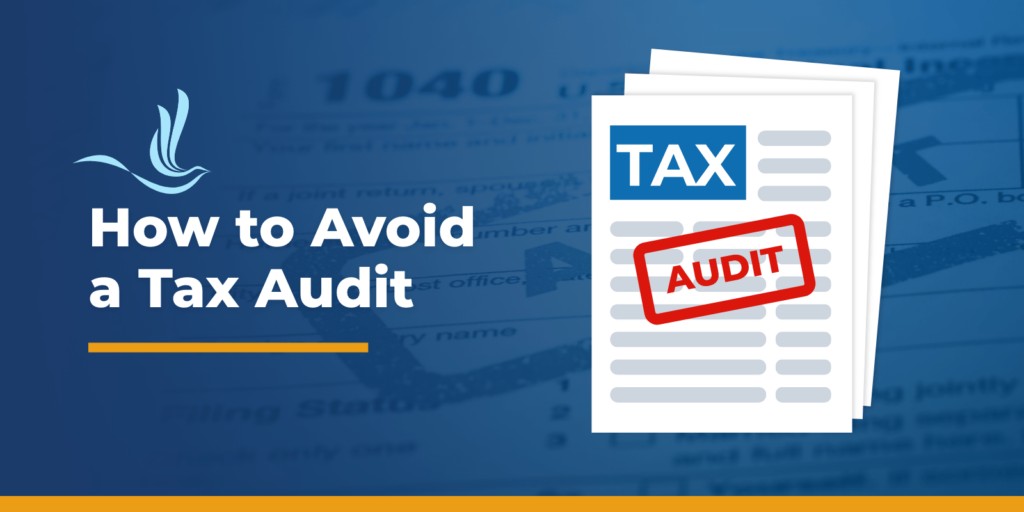
While there is no guaranteed method of avoiding audits, there are things to steer clear of that could trigger an IRS audit. The Senate recently approved nearly $80 billion in IRS funding, with $45.6 billion for enforcement, which could lead to more audits. Here are some things that the IRS has historically viewed as “red flags,” which could increase the chances of an audit for taxpayers.
Reporting a Business Loss
The IRS will surely be more inclined to audit a taxpayer who reports a net business loss, even if the loss is small. Reporting losses year after year will only increase IRS interest in your tax returns. Remember, it is mandatory to report all earnings in a tax year. However, it might be helpful to reconsider which expenses should be deducted from your tax return. Reporting even a small profit could reduce the chance of being audited by the IRS.
Being Vague About Expenses
When it comes to expenses, the more detail the better. This is especially true when categorizing them on your return. Try to avoid listing expenses under “Other Expenses” as this will lead to more scrutiny from the IRS. It may even be helpful to provide supplemental documentation explaining why certain expenses drastically increased or decreased for that year. Doing so can give potential auditors a valid explanation for such occurrences and possibly avoid a tax audit. Additionally, rounding dollar amounts are red flags for the IRS. You should always use exact dollar amounts on your tax return.
Filing Late
Some taxpayers believe that filing late can actually decrease the risk of being audited. However, filing on time, as well as paying on time, can help establish a history of IRS compliance. This will be far more beneficial in the long run.
Claiming Excessive Deductions
It is best to avoid any excessive expenses. For example, deducting the cost of your breakfast and lunch each workday may not be acceptable to the IRS. Excessive deductions for your donations to charitable organizations can also increase the chances of being audited. Inflating business expenses can result in being audited, especially if you try to claim large amounts for business entertainment or claim a vehicle that is used for business purposes 100 percent of the time. Also, remember to only claim the home office deduction for the portion of your home that is used exclusively for business purposes. When claiming this deduction, you will need to figure out how much square footage in your home is dedicated to your business. For tax year 2023, the rate for the simplified square footage calculation is $5 per square foot, with a maximum of 300 square feet or $1,500.
Keeping Poor Records
Even the simplest tax situations require adequate records. If your finances are more complicated, then detailed records are necessary. Some taxpayers may feel inclined to estimate their expenses because they did not save receipts or documents. Unfortunately, the IRS views this as a red flag. It’s important to make sure you have detailed records for the past three tax years at minimum. Having items like your previous tax returns, medical bills, business receipts, real estate documents, and investment statements can help substantiate your claims and avoid an IRS audit.
Choosing the Wrong Filing Status
Your filing status (single, married filing jointly, married filing separately or head of household) determines how you treat many tax decisions. it affects what forms you’ll fill out, which deductions and credits you’ll take. It ultimately determines how much you will pay (or save) in taxes. Select the wrong status, and it will trigger a cascade of mistakes–maybe even an audit. On top of that, if you decide to file jointly with your spouse, this means you’re responsible for their errors. This includes deliberate falsehoods on your partner’s return, so make sure that you’re comfortable with what it says.
Tax Relief for Those Being Audited
The chances of being audited are low, but those chances increase when the IRS notices red flags. The audit process can be very stressful. It is a tedious process that requires collecting information regarding your income, expenses, and itemized deductions. Failing an audit can result in a huge, unexpected tax bill. It’s best to seek assistance from experts who can help you avoid an IRS audit. Our team of qualified and dedicated tax professionals can help.
If You Need Tax Help, Contact Us Today for a Free Consultation